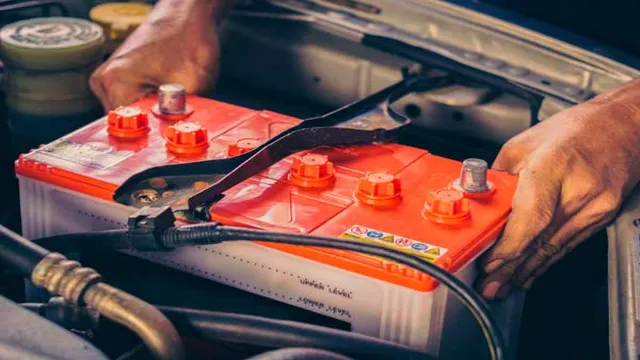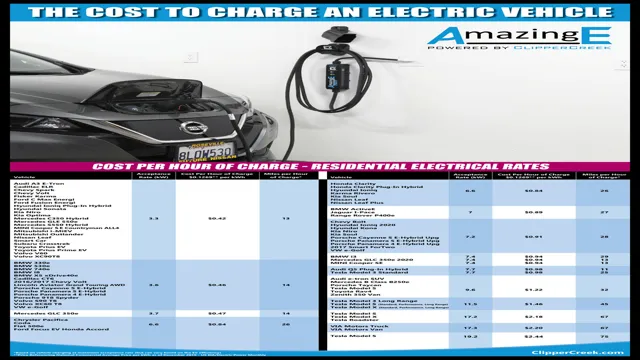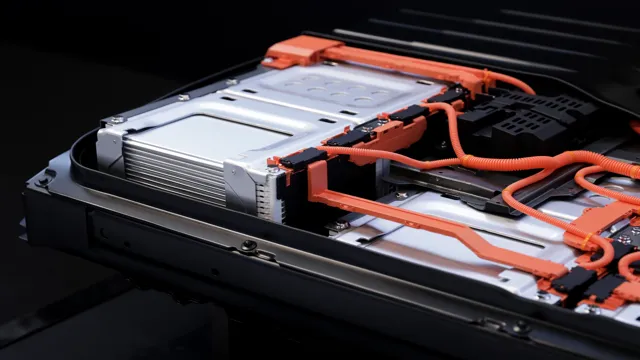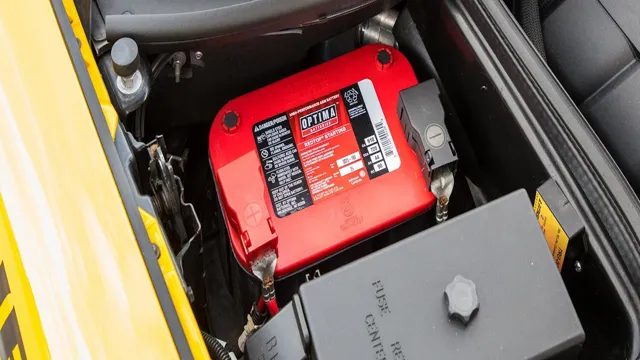Unpacking the Carbon Footprint of Electric Car Batteries: Mitigating Environmental Impact for a Sustainable Future
When it comes to reducing our carbon footprint, most of us tend to think about things like reducing plastic waste, eating plant-based diets, or using renewable energy sources. However, one area that often gets overlooked is the carbon footprint of our vehicles. Specifically, the battery in our cars can have a significant impact on the environment.
But don’t worry, there are steps you can take to reduce it. In this article, we’ll explore some practical ways to reduce the carbon footprint of your car battery, so you can drive guilt-free knowing you’re doing your part to protect the planet. From understanding the impact of your car battery on the environment to tips on maintenance and disposal, this guide covers everything you need to know about reducing your car battery’s carbon footprint.
Understanding Electric Car Batteries
People are often concerned about their carbon footprint when they consider purchasing an electric car. It’s important to understand that the battery is a critical component of this eco-friendly solution. The batteries used in electric cars are made up of numerous cells that store electrical energy, and they come in different capacities and types.
Lithium-ion batteries are the most common battery type used in electric vehicles due to their high energy density and long cycle life. However, the production of these batteries does require the consumption of minerals like cobalt, nickel, and lithium, which can have an environmental impact. Nonetheless, the overall carbon footprint of electric cars is still significantly lower than that of traditional gasoline-powered cars.
Additionally, ongoing research and development in the production of electric car batteries aim to create more sustainable and environmentally friendly solutions.
Composition and Environmental Impact
Electric car batteries are complex and fascinating systems with a significant impact on the environment. These batteries use a combination of metals such as lithium, nickel, and cobalt to store and distribute electrical energy. The composition of these batteries varies depending on the intended use and the manufacturer.
Environmental concerns arise from the mining and extraction of these metals. As demand for electric cars increases, so does the rate at which these metals are mined, leading to environmental degradation. However, recent developments in battery technology aim to reduce reliance on these metals by incorporating alternatives such as sodium or magnesium.
It is essential to understand the composition and environmental impact of electric car batteries to facilitate the transition to a more sustainable future.
Carbon Footprint vs. Traditional Car Emissions
Understanding electric car batteries is crucial when it comes to comparing the carbon footprint and emissions of traditional gas-powered cars. Electric cars are considered a better option when it comes to reducing carbon footprint as they emit no greenhouse gases. Electric car batteries use electricity stored in rechargeable batteries to run the motor.
These batteries can last for a significant amount of time before needing to be recharged, which is done by plugging the car into an electrical source. The type of battery used in an electric car can also influence its performance and range. Lithium-ion batteries are commonly used in electric cars, and they are lightweight and efficient, providing a longer range for the vehicle.
Understanding the battery will allow one to make an informed decision when choosing an electric car model that would work best for their individual needs.
Measuring the Carbon Footprint of Electric Car Batteries
When it comes to electric cars, one of the biggest concerns that people have is their carbon footprint. However, the carbon footprint of an electric car battery can be a bit tricky to measure. While it’s true that the production of the battery can have a significant impact on the environment, it’s also important to consider the emissions that are being avoided by driving an electric car.
To get a more accurate idea of the carbon footprint of an electric car battery, scientists use a tool called life cycle assessment. This takes into account the carbon emissions that are produced during every step of the battery’s life, from extraction of raw materials to disposal. Overall, the carbon footprint of an electric car battery can vary depending on a range of factors, but studies have shown that in most cases, electric cars are still much better for the environment than gasoline-powered vehicles.
Methodologies and Tools
The carbon footprint of electric car batteries has become a crucial concern in the effort to reduce carbon emissions and combat climate change. To measure the carbon footprint of electric car batteries, an array of methodologies and tools are employed. Life Cycle Assessment (LCA) is a widely accepted methodology because it considers the environmental impact of batteries throughout their entire life cycle, from the extraction of raw materials to the final disposal or recycling.
This approach takes into account the energy consumed during battery manufacturing, transportation, assembly, use, and disposal. Various tools, such as Simapro, GaBi, and Ecoinvent, are utilized to perform the LCA and generate accurate data on a battery’s carbon footprint. Other factors that impact a battery’s carbon footprint include the selection of materials, energy sources used in manufacturing processes, and battery chemistry.
The goal is to minimize the carbon footprint of electric car batteries by using renewable energy sources, optimizing battery design, and promoting battery recycling. Through these efforts, we can ensure that the transition to electric vehicles will have a minimum impact on the environment.
Real-World Examples
Electric Car Batteries As we move towards a greener future, electric cars are becoming increasingly popular because of their efficiency and eco-friendliness. However, as with any product, electric car batteries have a carbon footprint too. To measure the carbon footprint, we need to consider the entire lifecycle of the battery, from mining the raw materials to the end-of-life disposal.
For example, electric car batteries require rare metals such as lithium, cobalt, and nickel. These metals are mined extensively from countries like Australia, the Congo, and Russia, which can lead to environmental degradation and human rights violations. Additionally, the manufacturing process and transportation of these batteries add to their carbon footprint.
However, studies have shown that electric cars have a significantly lower carbon footprint in their lifetime than traditional gasoline-powered cars. Furthermore, improvements in battery technology and recycling methods can further reduce the carbon footprint of electric car batteries. Overall, measuring the carbon footprint of electric car batteries is essential in understanding their environmental impact and finding ways to improve their sustainability.
Comparing with Traditional Car Production
When it comes to comparing the carbon footprint of electric car batteries with traditional car production, there are a few key differences to consider. Traditional car production typically involves a lot of energy and resources, as well as emissions from the manufacturing process itself. On the other hand, electric car batteries require a different set of resources and manufacturing processes.
While some people may assume that electric car batteries are always better for the environment, the truth is that it depends on how they are produced and where their raw materials come from. Factors like the source of the electricity used to produce the batteries, as well as the types of materials used to make them, can have a big impact on their carbon footprint. Overall, measuring the carbon footprint of electric car batteries is a complex task that requires careful consideration of many different factors.
However, by making informed choices and supporting sustainable practices, we can all help to reduce our impact on the environment.
Ways to Reduce the Carbon Footprint of Electric Car Batteries
Electric car batteries have become increasingly popular in recent years, providing an eco-friendly alternative to gas-powered vehicles. However, the production of these batteries comes with its own carbon footprint. To reduce this impact, there are a few ways car manufacturers can lessen their environmental impact.
For one, using renewable energy to power battery production plants can significantly decrease the battery’s carbon footprint. Another way is to use recycled materials in the production of the battery, which lessens the reliance on mining new materials and reduces waste. Additionally, designing batteries that can be easily recycled at the end of their lifespan can further decrease the carbon footprint of the entire electric car system.
By taking these steps, we can drastically reduce the environmental impact of electric car batteries and move towards a more sustainable future.
Sourcing Sustainable Materials
Sourcing Sustainable Materials Ways to Reduce the Carbon Footprint of Electric Car Batteries As electric cars become more popular, it’s crucial to consider the environmental impact of their batteries. One way to reduce the carbon footprint of these batteries is to source sustainable materials. For example, incorporating recycled materials into the manufacturing process can significantly reduce its carbon footprint.
Additionally, using responsibly sourced minerals such as nickel, cobalt, and lithium for battery production is also essential. These minerals offer impressive energy storage performance which is vital for electric vehicles, but their mining and processing can generate significant environmental damage. As a result, automakers are looking for ways to use environmentally friendly alternatives or responsibly source them to ensure their sustainability.
In conclusion, sustainable material sourcing is vital in reducing the carbon footprint of electric car batteries, and more research is needed to find eco-friendly options.
Innovative Recycling and Disposal Techniques
One of the most crucial aspects of reducing the carbon footprint of electric car batteries is innovative recycling and disposal techniques. While electric cars are eco-friendly, their batteries contribute to environmental problems. One way to reduce their carbon footprint is through recycling.
The recycling process involves extracting useful materials such as cobalt, lithium, and nickel from the batteries and reusing them for other purposes. This reduces the need for virgin resources and prevents waste from ending up in landfills. Additionally, proper disposal is also a significant concern.
In most cases, electric car batteries can undergo a safe and compliant disposal process. However, disposing of them improperly can cause harmful environmental damage. Ultimately, recycling and proper disposal can help reduce the carbon footprint of electric car batteries and contribute to a cleaner environment.
Conclusion: The Future of Electric Car Batteries
In conclusion, driving an electric car with a rechargeable battery greatly reduces your carbon footprint. While some may argue that the process of manufacturing and disposing of the battery may offset these benefits, it’s important to remember that an electric car battery lasts for years, and advancements in technology are making them increasingly efficient and sustainable. So, if you want to make a witty and clever choice for the environment, switch to an electric car battery and put some positive energy into your driving!”
FAQs
What is a carbon footprint?
A carbon footprint is the amount of greenhouse gases, particularly carbon dioxide, released through daily human activities, such as transportation, energy use, and food consumption.
How do electric cars help reduce carbon footprint?
Electric cars are powered by rechargeable batteries and do not emit harmful pollutants like gasoline or diesel engines. By using electric cars, we can reduce the amount of carbon emissions and decrease the carbon footprint.
Can the production of electric car batteries contribute to carbon footprint?
Yes, the production of electric car batteries does indeed contribute to the carbon footprint. However, this can be minimized by using renewable energy sources, optimizing manufacturing processes, and improving recycling practices.
How can we calculate our carbon footprint related to electric car battery usage?
To calculate your carbon footprint relating to electric car battery usage, you can use an online carbon footprint calculator or consult your electric utility company for information on how much electricity your car is using and what the sources of that electricity are.




